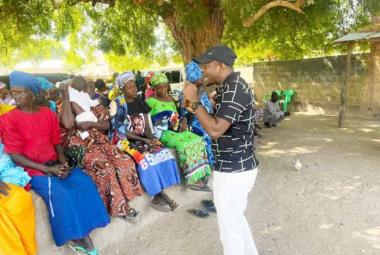Anna Marie Valentine
The Ministry of Petroleum and Energy (MoPE), in collaboration with the International Solar Alliance (ISA), last week validated the proposed amendments to the Renewable Energy Act 2013 and Electricity Act 2005. The validation workshop came about as a result of the partnership between MoPE and the International Solar Alliance, and the dedication to institutional commitments and the political support to promote and accelerate the deployment of renewable energy into the national energy mix. The initiative is part of the ISA support programme to develop a policy and regulatory framework that will accelerate the deployment of solar energy in The Gambia. The objective of the regulatory support initiative is to develop relevant energy regulatory frameworks that will enable scalable and sustainable renewable energy applications in the country.
This comes in two phases; the first is based on research to assess existing and emerging policy, legal and institutional issues relating to the deployment of solar technology applications in the country. Phase two will lead to the development of a model regulatory support framework for the viability and sustainability of renewable energy technologies. It is against this backdrop that INENSUS GmbH consulting firm was recruited through an international competitive bidding to review two of the key legislative instruments of the energy sector (i.e. the Electricity Act 2005 & Renewable Energy Act 2013), and the findings that were presented are a product of an inclusive, participatory and rigorous sector-wide consultation process.
To complement the consultations, a comprehensive review was also undertaken by the Technical Committee comprising of all the key institutions of the energy sector. The Gambia became a Member Country of the ISA in 2018, and has benefited from numerous support programmes including professional training and capacity building. Recently, The Gambia implemented a pilot project in Solar Agriculture Pumps in Wassadou and Siffoe women’s community gardens through ISA direct support. The Permanent Secretary at the Ministry of Petroleum and Energy, Mr Lamin Camara in his opening remarks posited that The Gambia, like many other countries, faces the dual challenge of meeting growing energy demands while minimizing environmental impacts.
“Grid integration of renewable energy sources, particularly solar and wind, presents a viable pathway toward achieving energy security, economic development, and environmental sustainability. By enhancing our grid infrastructure and building local capacities, we can ensure a more resilient and efficient energy system that benefits all Gambians,” PS Camara stated.
Legal Specialist for the International Solar Alliance, Ms Onyi Iyizoba, has said that the development of a policy and regulatory framework will attract investment into the sector. “This will instill a lot of capital investment and will require significant private sector participation. One of the ways used to promote this private investment in the sector will be by ensuring that there is clarity and a stable policy and regulatory environment”. The Ministry says it remains committed to the shared vision of a sustainable future, and that it believes that the decisions made and actions taken today will shape the energy landscape for generations to come.







